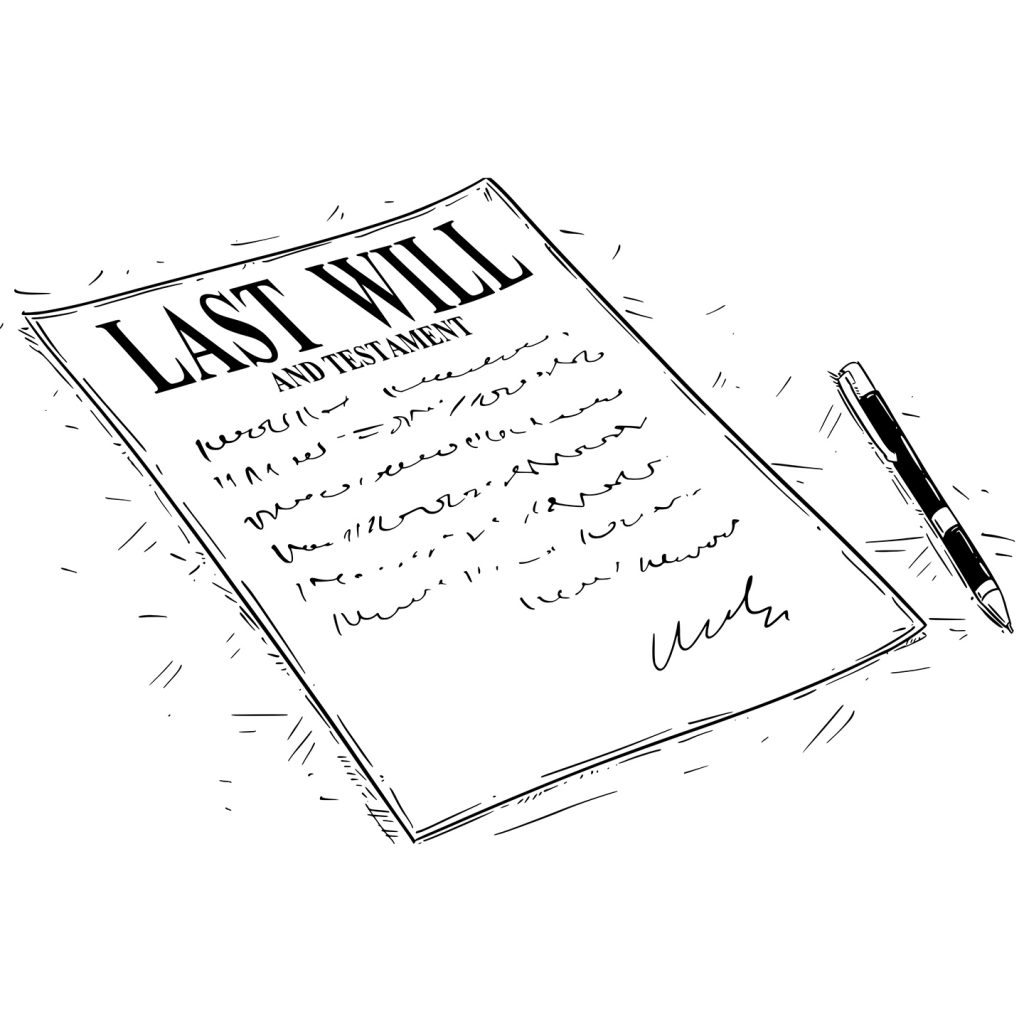Requirements for a Will to be Legally Valid?
The Will must be in writing and signed in the presence of two witnesses
A Will is a legal document which must be executed in a very specific way in order to be valid:
- It must be in writing
- It must be signed by the testator (the person making the Will) in the presence of two witnesses
- The two witnesses must sign the Will in the presence of the testator
The witnesses and their married partners should not be named in the Will as beneficiaries. If a named beneficiary is also a witness or the married partner of a witness it does not invalidate the will, but they cannot inherit.
The Will should also be dated although it can still be legally valid if it is not.
The testator must be over 18 years old
A child under the age of 18 cannot legally make a Will unless in active military service.
The Will must be made voluntarily
A Will can be challenged if it is suggested that the Will was made while the testator was acting under the influence of someone else.
Undue influence can be when a person threatens, pressures, coerces or forces someone to make a Will or change a Will for their own benefit. A threat does not have to be physical one it can include merely threatening to put an elderly relative in a home. Key indications of undue influence include:
- When someone makes unexpected changes to their Will
- The Will is detrimental towards their own interests
- The Will is different to the wishes they previously expressed such a removing a close relative who was included in a previous Will for no good reason
The testator must be of sound mind
- The testator must have what is called “testamentary capacity” to make a Will. A person lacks testamentary capacity where they do not understand:
What making a Will means or its effect?
- How much money or property they own
- What the consequences of making a Will are for the beneficiaries, people left out of the Will, and people who would inherit under the Rules of Intestacy (if no Will was made)
- Additionally, they must be able to make decisions for themselves.
What happens if a Will is invalid?
If a Will is invalid, the estate will either be distributed according to the testator’s last valid Will, or according to the Rules of Intestacy if there is no previous Will.
Under the Rules of Intestacy, the testator’s spouse or civil partner will inherit the entirety of the estate, unless they had children (including adopted children), in which case, the spouse/civil partner will inherit the first £250,000 of the estate, all the testator’s personal belongings, and half of the remaining estate. The other half of the remainder will be divided equally between the children.
If these is no spouse/civil partner or children, the estate will be inherited by other close relatives.
Unmarried partners unfortunately cannot inherit under the Rules of Intestacy.
Get expert Will writing advice
At CKE Attorneys, our expert Will Solicitors can make sure your wishes are respected, as far as legally possible, after you die by drafting you a well-structured and thought-out Will with meticulous attention to detail, ensuring all legal formalities are complied with.
In addition, to our Will Writing Service, we can provide insightful advice about the best way to structure your estate to minimise Inheritance Tax.
Latest Articles
Insights, events and opinions on the latest law, legislation and policies.
-
 Do I need a will if I’m under 50?Read ArticleIf you're someone that likes to weigh up the costs and benefits of something, then creating a will when you're under the age of 50 may not seem worthwhile. However, this consensus generally comes from the notion that wills cost hundreds of pounds to make - all whilst having an extensive meeting(s) with a lawyer.
Do I need a will if I’m under 50?Read ArticleIf you're someone that likes to weigh up the costs and benefits of something, then creating a will when you're under the age of 50 may not seem worthwhile. However, this consensus generally comes from the notion that wills cost hundreds of pounds to make - all whilst having an extensive meeting(s) with a lawyer. -
 Our Terms of BusinessRead ArticleThis document (‘Our Terms’ or ‘These Terms’), together with our ‘client care’ letter for each matter we work on, forms our entire agreement with you to provide legal services (‘our Agreement’). It is an important document and should be read carefully. If you are unsure of any part of These Terms you must contact us for clarification before we begin work for you.
Our Terms of BusinessRead ArticleThis document (‘Our Terms’ or ‘These Terms’), together with our ‘client care’ letter for each matter we work on, forms our entire agreement with you to provide legal services (‘our Agreement’). It is an important document and should be read carefully. If you are unsure of any part of These Terms you must contact us for clarification before we begin work for you.
